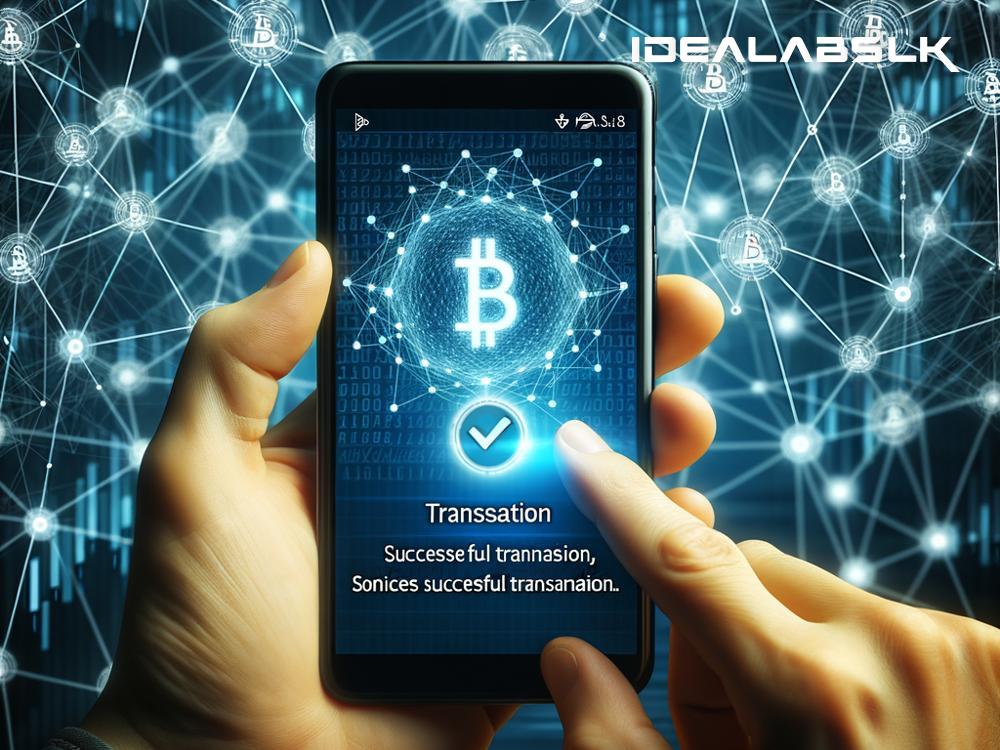Title: Understanding How Blockchain Powers Mobile Payments
In an age where our smartphones are practically glued to our hands, mobile payments have become increasingly popular for their simplicity and convenience. From buying your morning coffee with a tap to transferring money to a friend, mobile payments are everywhere. But have you ever wondered what makes these transactions secure and trustworthy? Enter blockchain technology, a game-changer in the world of mobile payments. Let's break down how blockchain works in mobile payments, in simple English, so you can understand its impact and why it's so revolutionary.
What is Blockchain?
Imagine a ledger or a record book, which instead of being kept in one single location, is distributed across a network of computers. This ledger records transactions in a secure, transparent, and immutable manner. Each entry in this ledger is called a 'block,' and these blocks are linked together in a 'chain' in a chronological order, hence the name blockchain.
The beauty of blockchain is its ability to maintain a tamper-proof record of transactions without the need for a central authority, like a bank, to oversee it. This decentralized nature of blockchain makes it an attractive technology for various applications, with mobile payments being one of them.
How Blockchain Powers Mobile Payments
1. Security
One of the biggest concerns with online transactions is security. Traditional mobile payment systems rely heavily on banks and payment processors as intermediaries, which can be points of vulnerability. Blockchain eliminates the need for these intermediaries by allowing transactions to occur directly between users on a peer-to-peer network.
Each transaction on a blockchain is encrypted and linked to the previous transaction, creating a chain that is virtually impossible to tamper with. This ensures that your mobile payments are highly secure and reduces the chances of fraud.
2. Speed and Efficiency
Ever been frustrated by how long it takes for a transaction to process or a transfer to go through using traditional banking methods? Blockchain significantly speeds up the process. Since there's no need for verification by a central authority, transactions on the blockchain can be processed and settled within a matter of seconds or minutes, even across borders. This can make your mobile payments lightning-fast compared to traditional methods.
3. Reduced Costs
When you make a mobile payment using traditional methods, there are often fees involved, which can add up over time. These fees are there partly to cover the costs of the intermediaries facilitating these transactions. With blockchain, the elimination of these intermediaries can significantly reduce transaction costs, making mobile payments more affordable.
4. Transparency and Trust
Blockchain's transparent nature means that every transaction is recorded on a public ledger that anyone can view. This transparency ensures that transactions are conducted fairly and openly. In addition, the immutable record of transactions builds trust among users, as once a transaction is recorded on the blockchain, it cannot be altered or deleted.
Real-World Applications
Several companies are now leveraging blockchain technology to enhance mobile payment experiences. Cryptocurrencies like Bitcoin and Ethereum are perhaps the most well-known examples of blockchain-powered payments. However, beyond cryptocurrencies, companies are developing blockchain-based mobile payment solutions that allow for instant, secure, and low-cost transactions without the need for traditional currencies.
Emerging technologies like digital wallets and mobile apps are integrating blockchain to offer users more control and security over their transactions. They're not only being used for financial transactions but also for loyalty programs, ticket purchases, and even identity verification, showcasing the versatility of blockchain in the mobile payments space.
The Future of Mobile Payments with Blockchain
The integration of blockchain into mobile payments is still in its relatively early stages, but it's clear that it holds the potential to transform how we conduct transactions. As the technology matures and more businesses adopt blockchain-based payment solutions, we could see a future where mobile payments are faster, cheaper, and more secure than ever before.
In conclusion, blockchain technology is redefining the landscape of mobile payments, offering distinct advantages over traditional methods. Its ability to facilitate secure, transparent, and efficient transactions makes it a potent tool in the evolution of mobile commerce. As we move forward, the continued innovation and integration of blockchain in mobile payments will undoubtedly create a more seamless and trustworthy digital economy for everyone.

